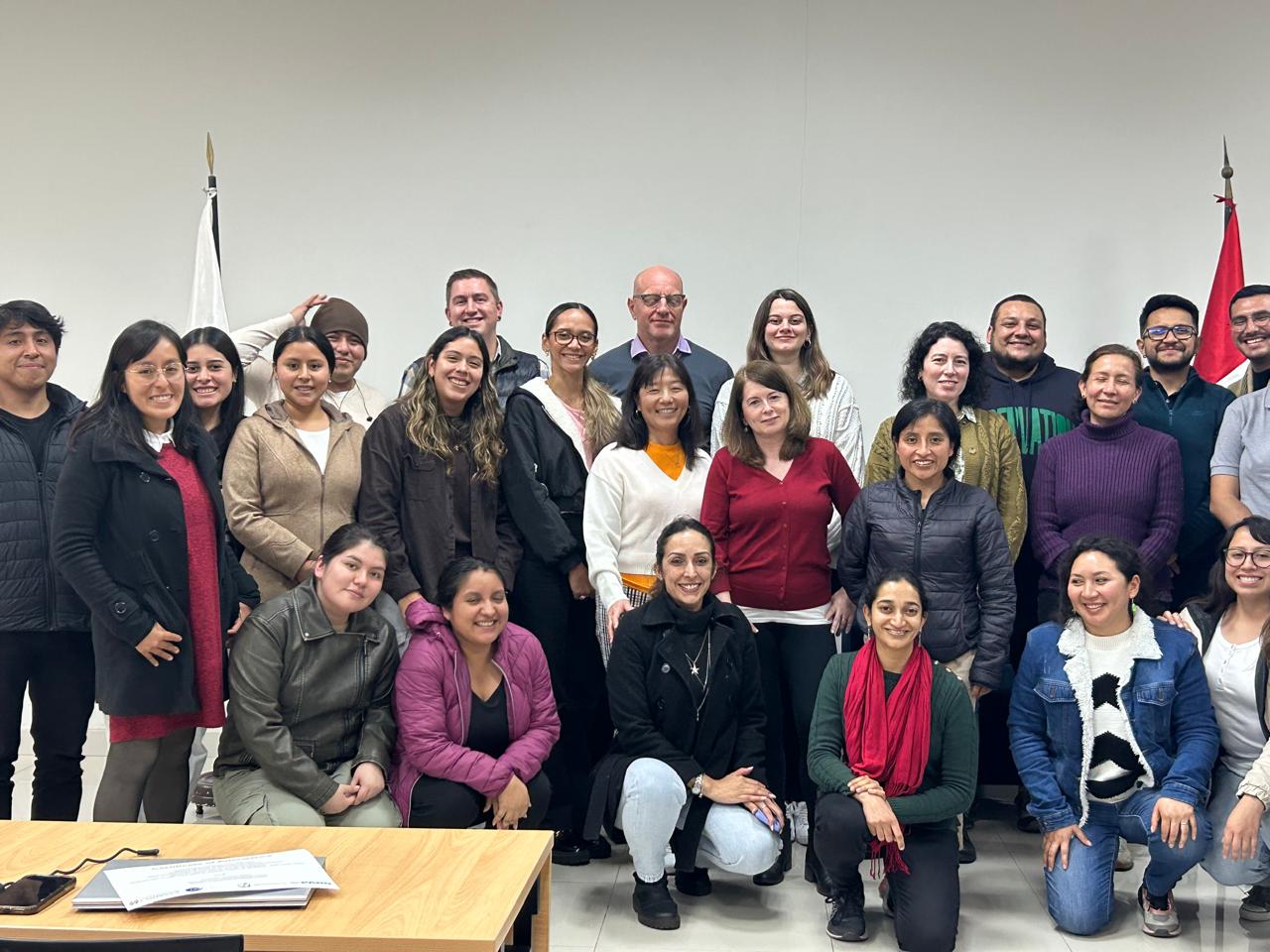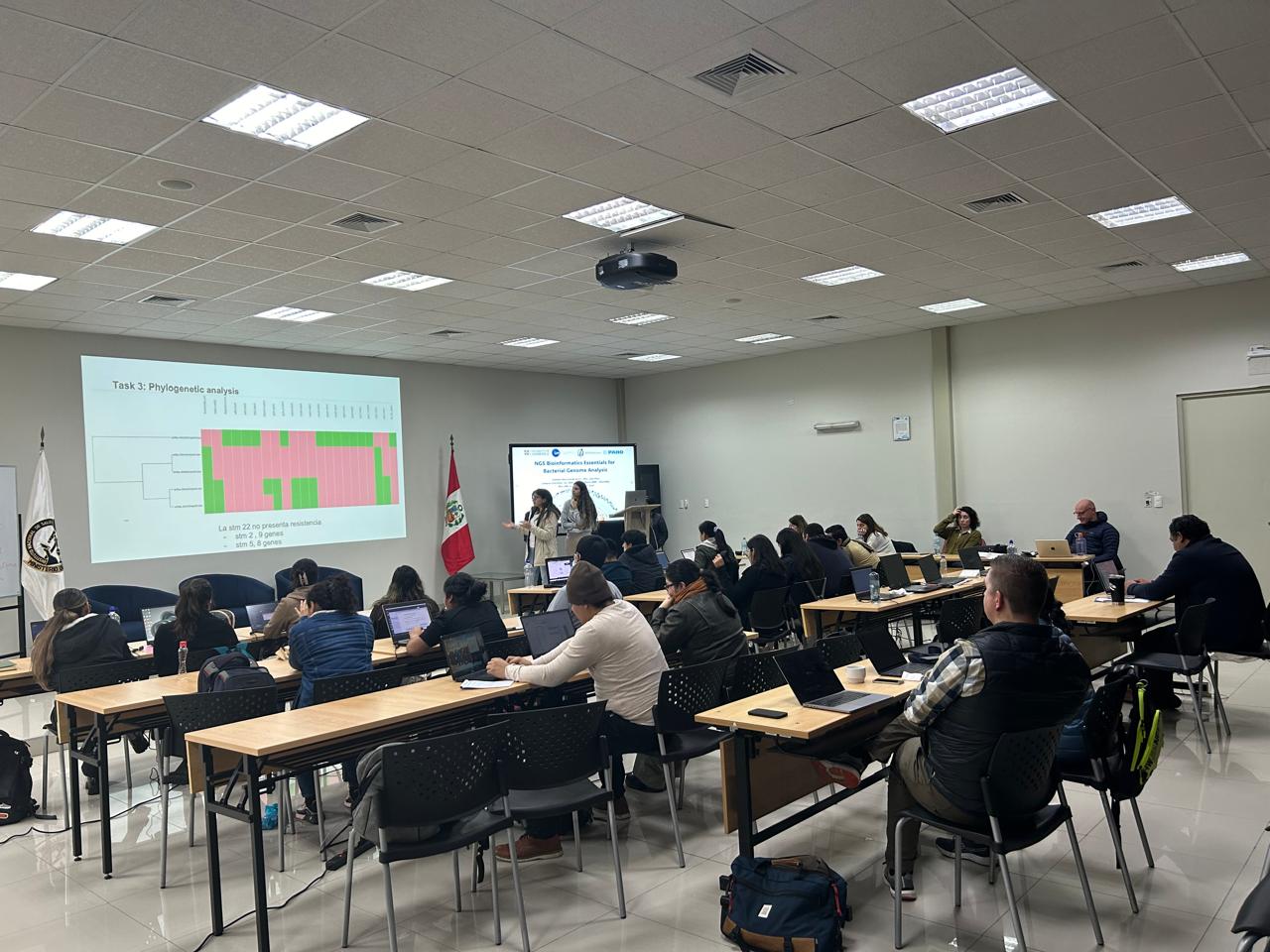
Lima, Peru, July 8, 2024 (PAHO) – A critical training program launched in Lima, Peru, aimed at equipping researchers across Latin America with cutting-edge bioinformatics skills to tackle bacterial threats, particularly those transmitted by food and water. The "NGS Bioinformatics Essentials for Bacterial Genome Analysis" course, organized by the University of Cambridge and the International AIDS Vaccine Initiative (IAVI) in collaboration with the National Institute of Health (INS-Peru) and the Infectious Hazards Management Unit from the Health Emergencies Department at the Pan American Health Organization (PAHO), represented a major step forward in regional genomic surveillance capabilities.
This theoretical-practical course laid the groundwork for the PAHOGen genomic surveillance strategy, particularly within the PulseNet Latin America and Caribbean Network for food born bacterial diseases. The intensive week-long program focused on Next-Generation Sequencing (NGS) analysis of bacterial genomic datasets and was designed to deliver comprehensive bioinformatics training. Through a combination of lectures and hands-on exercises using real-world datasets, the objective was to equip participants with essential bioinformatics skills, allowing them to adeptly navigate the complex landscape of NGS data analysis.
"This course is a cornerstone of PAHO's PAHOGen strategy," said Dr. Isabel Chinen from PAHO. "By strengthening bioinformatics skills in the region, we can significantly improve our ability to track and respond to emerging bacterial threats."
Upon completion, participants had acquired proficiency in using the Linux command line for data analysis, understanding various data/file formats utilized in high-throughput sequencing data analysis, performing quality control (QC) of high-throughput sequencing data, practical knowledge of essential tools and pipelines for bacterial genome data analysis, and the ability to install and manage crucial bioinformatics software and pipelines for bacterial genome data analysis.
The course hosted 15 national participants from Peru, representing various health entities and academic institutions, along with five regional participants from Paraguay (Lab. Central Salud Pública), Chile (Inst. Salud Pública), Ecuador (Inst. Nac. Salud Pública e Investigación), Panamá (Inst. Conmemorativo Gorgas Estudio de la Salud), and Colombia (Inst. Nac. Salud). The course was taught by a distinguished panel of experts, including Prof. Stephen Baker from the University of Cambridge and IAVI, London, UK; Bioch. Claudia Carolina Carbonari from the National Institute of Infectious Diseases – ANLIS, Argentina; Dr. Megan Carey from IAVI, London, UK; Dr. Jacqui Keane from the University of Cambridge, UK; Dr. Elli Mylona from the University of Cambridge, UK; and Dr. Sushmita Sridhar from Universidad Peruana Cayetano Heredia, Peru. The course was organized by Ronnie Gavilán from INS-Peru, Isabel Chinen from IHM/PHE/PAHO, WDC, USA, and Prof. Stephen Baker from the University of Cambridge and IAVI, London, UK.
This collaborative effort showcased a significant investment in the future of public health in Latin America. By strengthening bioinformatics capabilities, the region gained a powerful tool for combating bacterial threats and ultimately improving health outcomes for all.





